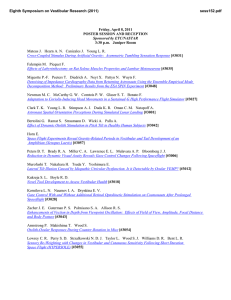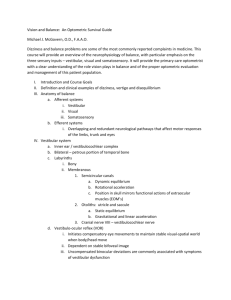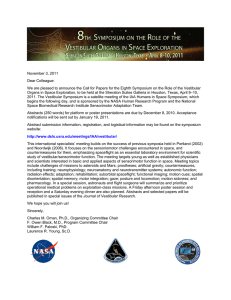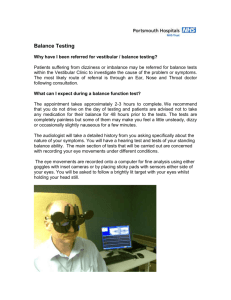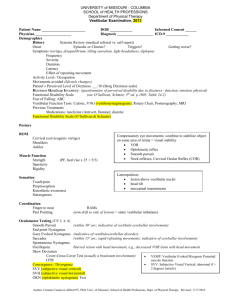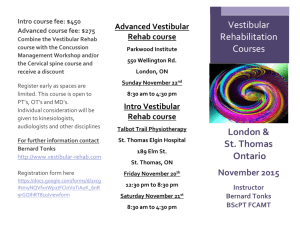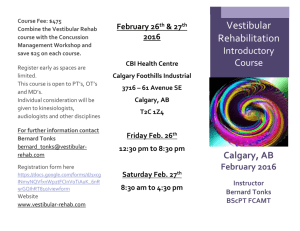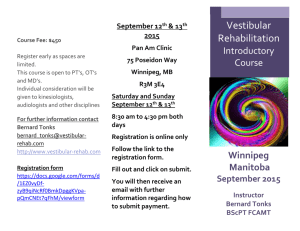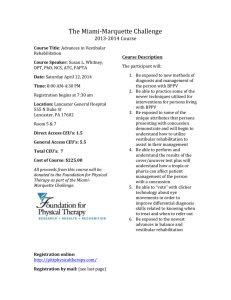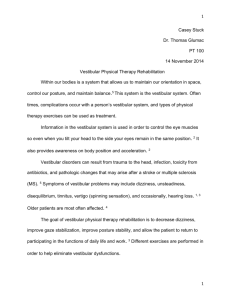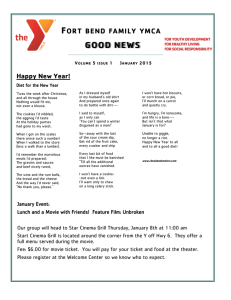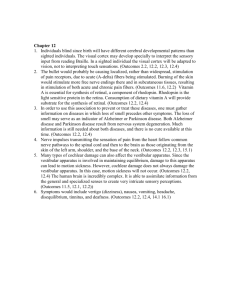The Role of Vestibular Rehabilitation in Concussion Management
advertisement
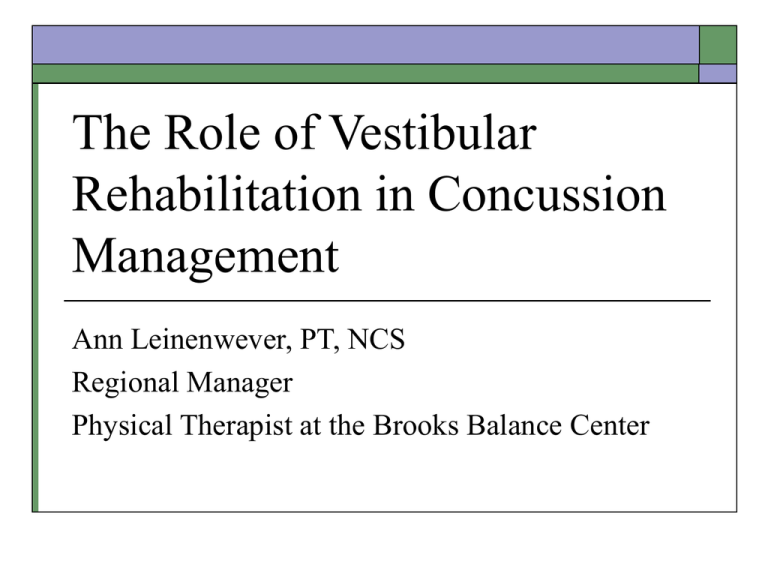
The Role of Vestibular Rehabilitation in Concussion Management Ann Leinenwever, PT, NCS Regional Manager Physical Therapist at the Brooks Balance Center Vestibular System Peripheral System/Labyrinth Central Nervous System Processing 5 sensory organs that detect linear and angular acceleration Cranial Nerve VIII (Vestibulocochlear) Vestibular Nuclei in the Midbrain Primary Function Gaze Stabilization Postural Stability Vestibular System Injury to the peripheral apparatus (labyrinthine concussion) or to the central nervous system can lead to symptoms of: Imbalance Dizziness Vertigo Difficulty Focusing Balance System Vestibular system works in conjunction with the visual and somatosensory system in order to maintain one’s balance in any given environment or activity Vestibular System is crucial in high demand activities, i.e. sports or when visual or somatosensory input is either absent, impaired or conflicting Vestibular Rehabilitation Examination by a trained physical therapist will determine one’s functional limitations and impairments Once identified, a plan of care will be established to focus on deficits in order to improve gaze stabilization, balance and reduce dizziness Goal is to return patient to prior activity level or sport without symptoms Tests and Measures Positional Testing Vestibulo-ocular Reflex (VOR) Testing Balance Testing Computerized Dynamic Posturography Subjective Questionnaires Sample Exercises VOR: Focus on a non-moving target, move head through a small range right and left, while maintaining gaze on target. Repeat for 1 minute and then repeat moving head up and down Balance: Single Limb Support, altering challenge by performing eyes closed, with head motions, while on compliant/foam surfaces, or a combination of all Customized based on need’s of patient and goal of their sport or activity Questions? Ann Leinenwever, PT, NCS Brooks Balance Center 10475 Centurion Parkway N. Ste 304 Jacksonville, FL 32256 904-854-2050 904-854-2058-fax Ann.Leinenwever@brooksrehab.org
